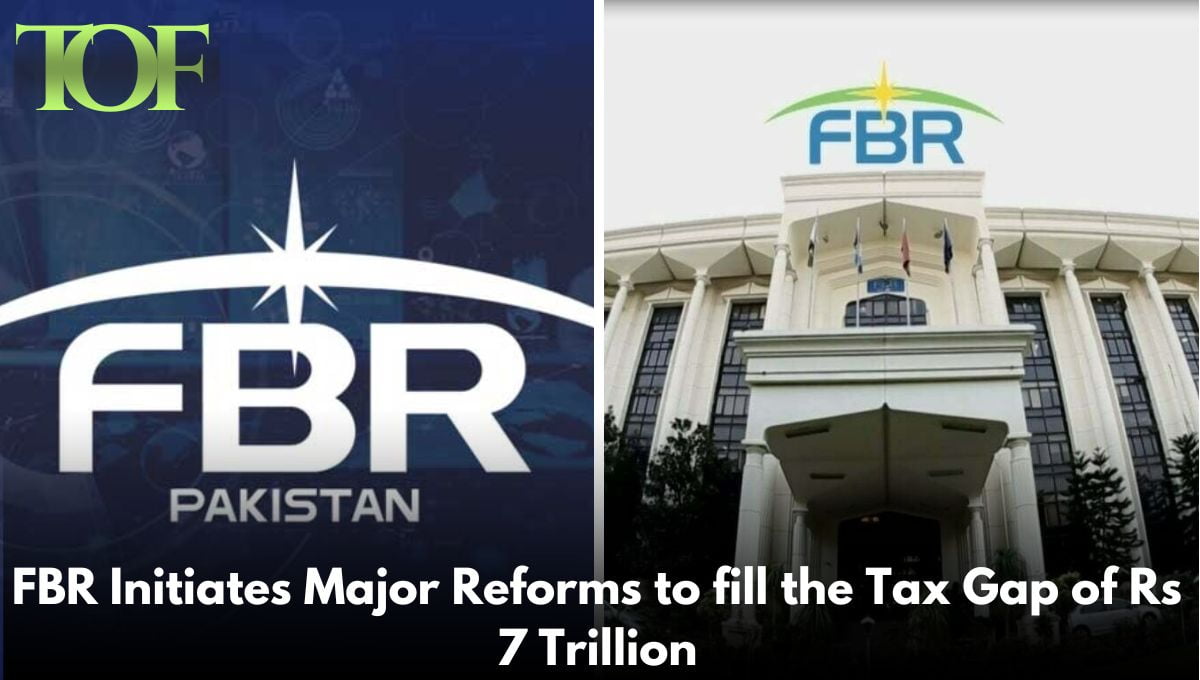FBR Reforms to Fill Tax Gap
The tax deficit of Pakistan has gone up to Rs 7 trillion in the Fiscal Year of 2024 from Rs 1.289 trillion in the Fiscal Year 2022. A broadening gap in tax collection poses serious challenges for the FBR. Looking into this situation, substantial reforms must be enacted to improve the collection of taxes so that the country can meet the conditions set by the IMF regarding its bailout.
The tax deficit has been increasing across the board. Particularly, the sales tax deficit soared from a modest Rs519 billion in FY22 to Rs3.2 trillion in FY24, primarily due to tax evasion, fraudulent invoices, and low collection rates in sectors such as textiles, tobacco, and cement.
The FBR plans to come up with a comprehensive reform package in the coming days in front of Prime Minister Shehbaz Sharif to this effect, proposing desk audits and performance-based incentives for tax officials to make sure digital invoicing takes place. A compulsory electronic invoicing system for manufacturers will soon be rolled out in four to five months, while the 33,000 Point of Sale systems will be expanded to 60,000 aimed at eradicating under-reporting by retailers.
Another program that the FBR plans is to induct 2,000 to 4,000 professional auditors for desk audits of over half of the tax returns. This would be supported by newly developed software that cross-checks tax returns with other databases and checks for anomalies.
Furthermore, the reopening of the award system for POS purchasers is also suggested which will further encourage citizens to watch and report non-digital receipts. FBR will increase manpower strength and also enhance its IT infrastructure for proper law enforcement.
As part of its crackdown on tax evasion, FBR will also audit high-net-worth individuals and major companies. Here, FBR will engage external audit firms employing a workforce of 4,000 professional auditors for this exercise. This will look into the top 5% of wealthy people and companies-that is, those who might be hiding their money and help bridge the growing gap in income tax, which has risen to Rs 2 trillion in FY24.
These are reforms that will be deployed over the next three to four years but would more closely address the tax gap, expand compliance, and hone in on the IMF’s objectives regarding the maintenance of Pakistan’s financial stability.
To Read More: Local News

